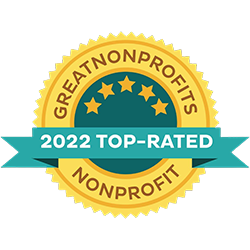
Feb 24, 2014
On a Mission in Dallas
The COMMIT Foundation’s mission is to create serendipity for transitioning veterans by fostering mentorship, networking and inspiration. One week ago today, we gathered for this mission in Dallas, Texas. COMMIT teamed with The STATION Foundation, a tremendous organization out of Bozeman, Montana that provides resources to help members and families of the Special Operations Community attain the same elite performance in their personal lives as they enjoy in uniform.
Through an application and selection process, we chose 13 quiet professionals to attend our workshop. There were 11 men and 2 women. We spent the next day and a half with some of the most grateful, humble, and distinct executives from the private sector who got extremely personal and shared stories on the evolving and unexpected paths to success, life’s big decision points, and learning lessons from bumps along the road. Veterans were given the opportunity to seek counsel on their potential paths and determine plans for the next 3-5 years to help get them to where they want to be in 20.
Prior to Dallas, I reached out to a man who I respect and admire and am fortunate to have worked with and for since the day I met him. After conducting two highly successful COMMIT workshops, one for Italian American veterans and the other for women veterans, I was a bit nervous about doing a workshop for SOF knowing I’d potentially be held to a higher standard. General McChrystal noted that if I could continue to exceed people’s expectations, I would be successful. I’m pleased to report that we completed our mission.
Each workshop tends to leave an impression on me for a different reason and the stories and counsel from this one could make up a book. Our veterans noted that they applied and came to Dallas looking for clarity of purpose in a future that felt daunting. They wanted to unlearn and relearn to set themselves up for success in their new lives.
As the former CEO of FAO Schwartz and former COO of Patagonia spoke of the unbeaten path and how to embrace opportunity, a picture was painted of an untraditional trail to success and happiness. There were stories of redemption and ones of walking away from big titles and money in order to work on something about which you are passionate. One mentor noted that the challenge for the veterans would be starting at the bottom again and he counseled them to do what they are asked to do and do it well before trying to move up in an organization. He also noted that having the reputation of someone who fixes things is a good reputation to have.
I was pleased that many executives spent a lot of time talking about their families. They shared stories on well-rounded success and taking care of not only yourself but your family. One mentor called “family” the veterans’ new special mission unit. The same mentor asked the veterans to think about what they’ve been doing for villages in remote areas. He then challenged them to come home and apply that same energy and contribution to their own communities.
COMMIT has three lines of operation: our one-on-one transition program, our mentoring workshops and our corporate education initiative. When we conduct our workshops, I always go into them very focused on the veteran experience but am amazed at what the executives take away. One Chairman of the Board for a major airline wrote and said, “I went there thinking I was sacrificing a day for a good cause in the middle of a too-busy schedule. By mid-morning, I realized that it was I who was the student, the learner, the one honored to be with such wonderful young people.” COMMIT could not ask for anything more than for the executives to have this experience. Our mission is for them to leave proud and excited of the talent entering the workforce and with energy and desire to bring them into their corporate culture and family for the right reasons.
COMMIT is working to spread the word on what we are accomplishing. We need support to continue our cause. I challenge you to find anyone doing what we are in such a meaningful and individual way. People ask about the scalability of our program and whether we’re helping the vets that truly need help. I can assure you we are. We see it in their face, hear it in their voice and read about it in countless thank you notes after our programs.
We as a Nation tend to get lost in big numbers, big initiatives, big strategies and big task forces. It’s a lot simpler than we think. If each of you today would simply stop and help one veteran before you go to bed tonight and then wake up tomorrow and do the same thing, we’d be much further down this road than we could ever imagine. Today’s veterans are our Nation’s finest. Their value instilled in our Nation will lead to more success and strength than we could ever imagine. They truly are the next greatest generation.


